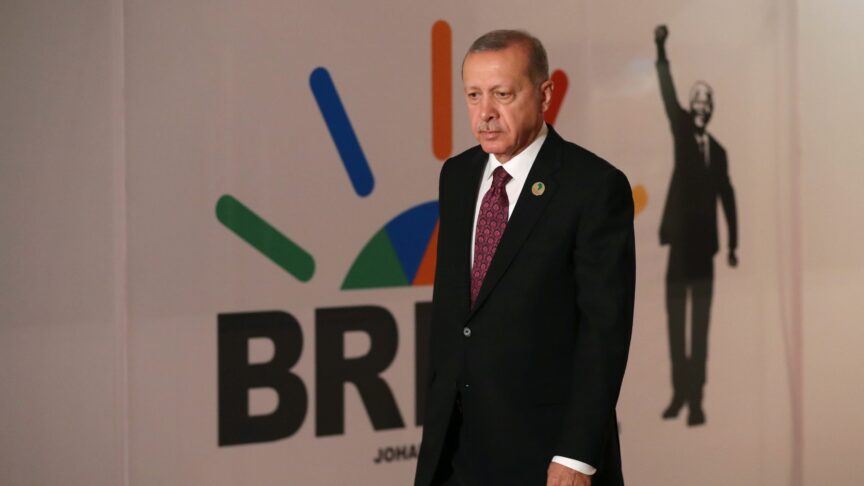Czechs raise the stakes on Lisbon
All being well with Europe, the Treaty of Lisbon would now have been ready to come into force on 1 January. But all is not well
This article was published in the Financial Times on 10 November 2008.
All being well with Europe, the Treaty of Lisbon would now have been ready to come into force on 1 January. All is not well.
Sweden has been lazy, and will only complete its parliamentary ratification process next week. The Polish president refuses to sign the ratification instrument despite the fact that his parliament has ratified the treaty. The German president is constrained from signing until a challenge in his constitutional court has been seen off. The people of Ireland saw fit to reject the treaty last June in what has come to be seen as their first of two referendums on the matter. And ratification by the Czech Republic has stalled irritatingly.
The Czech problem matters because its government takes over the presidency of the European Union for six months on 1 January. One of the main jobs of the Czech presidency will be to help Ireland implement the plan, supposedly to be agreed by the European Council in December, to salvage the treaty. So instead of being part of the solution, the Czechs have become part of the problem. The Czech presidency will lack all credibility and authority unless and until its government secures the ratification of Lisbon.
In good times, a weak EU presidency may not matter very much. These are bad times, and we are fortunate to have had France’s superman President Nicolas Sarkozy in charge since July. The contrast with Mr Sarkozy’s successor, Czech prime minister Mirek Topolanek, could not be greater. It is a contrast sharpened by the entirely coincidental arrival on the scene of America’s own superman, Barack Obama, with an agenda of change. To many, Europe’s leadership will seem to be going in just the wrong direction at a time of acute global crisis – mumbling ‘sorry, no, we can’t’ as it leaves the stage.
It is not that middling sized countries such as the Czech Republic cannot run good EU presidencies: many have. And there is a good crop of energetic Czech ministers entirely capable in normal circumstances of managing the routine business of the EU Council and of properly being held to account in the European Parliament.
The issue is, rather, whether the Czech Republic has yet come to terms with its membership of the EU. As the first of nine ex-Warsaw Pact countries to take the helm of the Union, the question has rather wide ramifications. Last week in Prague I heard one leading Czech senator liken Mr Sarkozy’s mini-summit, at the height of the financial meltdown last month, to a ‘gathering of the four Powers of Munich’ – that is, Messrs Chamberlain, Daladier, Hitler and Mussolini in 1938. The author of this slander against the current crop of Europe’s top leaders was a senior member of the governing Civic Democrats (ODS). The remark produced no reaction at all from other Czech senators, most of whom seemed to be labouring from deep illusions about the Lisbon treaty heard otherwise only on the wilder shores of rightwing europhobia.
One has come to expect the parliaments of former communist states to be assertive. Slender majorities and febrile political parties make governing difficult in Central Europe. The Czech senate has raised a petition in the constitutional court against the Lisbon treaty, requesting a judgment on whether the EU treaty conforms with the constitutional character of the Czech Republic ‘as a sovereign, unitary and democratic, law-abiding state’. The notoriously eurosceptic Czech president, Vaclav Klaus, founder of the ODS, has joined the case against the ‘dead document’ of the treaty and the ‘useless document’ of the Charter of Fundamental Rights (which Lisbon makes mandatory). In a somewhat erratic submission to the court, Mr Klaus inveighs against the creation of a European federal state, which, he asserts, will be advanced by Lisbon. He attacks some general principles of European integration, including that of European citizenship. For Mr Klaus and his fearful senators, it appears that democracy can only be national and sovereignty is not to be shared. They reject the concept of deepening interdependence between EU member states.
The President of the Republic has mounted a veritable attack on Czech membership of an EU governed by the Treaty of Lisbon. Mr Topolanek’s government has made a full and fluent response to the constitutional court which should be able to convince any fair-minded judge that the Czech national interest is best served by strengthening rather than weakening the EU. The court’s judgment is, alas, postponed until 25 November while President Klaus goes on a state visit to Ireland.
In Dublin Mr Klaus intends to raise the stakes by (outrageously) meeting the anti-European demagogue Declan Ganley, who led the ‘No’ campaign in the first Irish referendum. Mr Ganley is trying to woo the ODS into joining a parliamentary group of rightwing nationalist MEPs after next June’s European elections.
Mirek Topolanek, meanwhile, needs to work hard on his party and parliament. A critical Congress of the ODS is to be held on 6 December, at which the party will decide on whether to link the deployment of the US anti-missile radar system with the Lisbon treaty. In the parliament, where the radar issue divides government and opposition, a three-fifths majority is needed for the treaty ratification in both Houses.
The government should focus on how the Treaty of Lisbon improves on the present Treaty of Nice. It can promise always to ask parliament’s permission before agreeing in the European Council to the deployment of the treaty’s flexibility clauses which allow for more qualified majority voting. It must explain and defend the principle whereby the Union only enjoys competencies expressly conferred on it by treaty. It should keep the ODS party firmly within the ranks of the mainstream centre right in the European Parliament.
Above all, the Czech government must shatter the widespread delusion that if Lisbon is sunk there will be something better around the corner. There won’t. Lisbon is as good as it gets for Czechs and us fellow Europeans. If Mr Topolanek does all this he will rescue his term as EU president. If he does not, the four Powers of Munich may be back with a vengeance.
Andrew Duff leads the UK Liberal Democrats in the European Parliament. He is also President of the Union of European Federalists and a member of the European Council on Foreign Relations. www.andrewduff.eu
Copyright The Financial Times Limited 2008
The European Council on Foreign Relations does not take collective positions. ECFR publications only represent the views of their individual authors.


